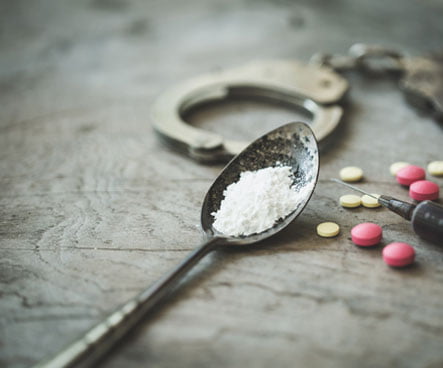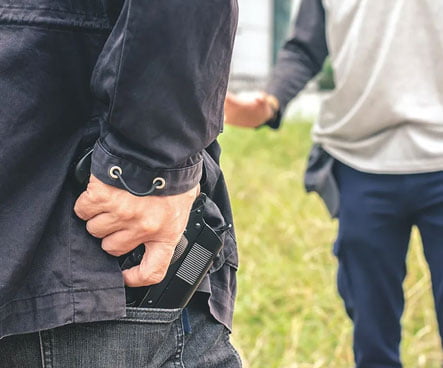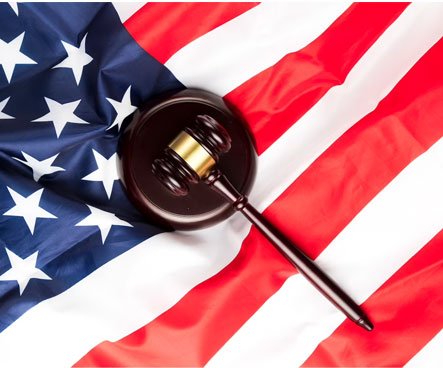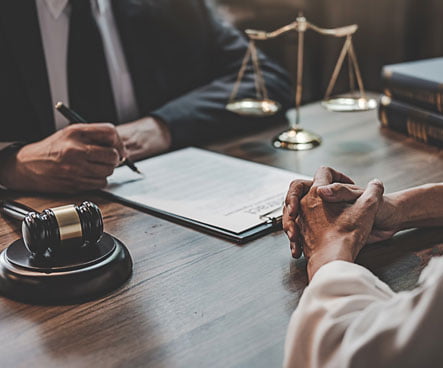Marietta Drug Crime Lawyer
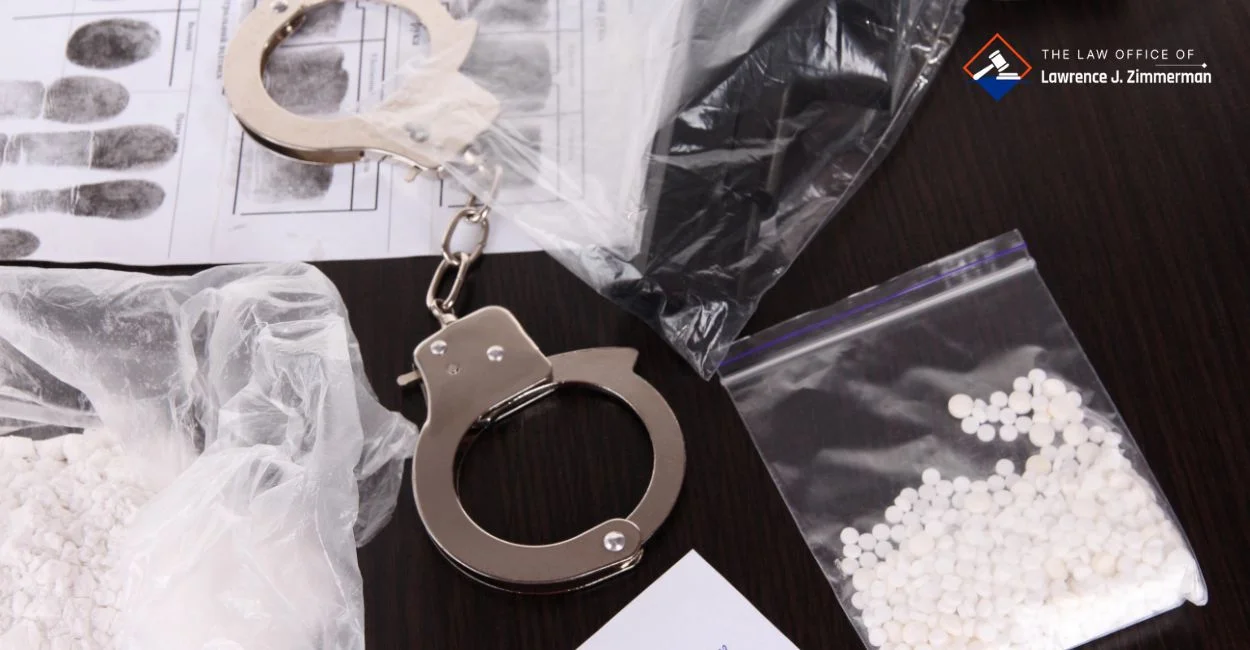
Drug Crimes
Marietta Drug Crime Attorney
Georgia takes drug crimes very seriously, with many crimes being a felony. Be sure to speak with a Marietta drug crime lawyer as quickly as you can after being charged. The more time a skilled criminal defense attorney can work on your case, the higher the likelihood there is of getting the case dropped or for a legal professional to begin crafting a strong defense on your behalf. A felony conviction can have severe impacts on your life and future for years to come.
The Law Office of Lawrence J. Zimmerman is an adept and experienced criminal defense law firm. Our qualified law team has been successful in assisting numerous clients when facing drug violation charges, including drug trafficking, selling, purchasing, manufacturing, and more. Our law firm also defends clients accused of violent crimes, firearms violations, sex offenses, white collar crimes such as fraud, and other federal offenses, along with the appeals process.
Drug Laws and Offenses in Georgia
Georgia laws categorize illicit and controlled substances into five distinct classifications: Schedule V encompasses substances with the lowest likelihood for addiction, abuse, and mental or physical dependence and have an established use for treatment in the medical community. Schedule I drugs are seen as having the highest potential for abuse, along with the substance having no benefits, recognized treatments, or accepted uses, even under medical supervision.
These classifications play a part in influencing how serious the charges will be for a person found or suspected of committing a drug offense. The severity of the controlled substance and the exact amount of it in tandem with the specific drug violation cause charges to vary from case to case, in addition to potential penalties if convicted. These are the types of drug crimes in Georgia:
- Cultivation or manufacturing: It is a felony to grow or manufacture a controlled substance. Someone may be accused of drug manufacturing if they are found with certain equipment and/or paraphernalia. In some cases, even possession of certain ingredients or components used in the manufacturing or cultivation of a drug may be sufficient grounds for arrest.
- Possession, including possession with the intent to distribute:A person can be charged with the misdemeanor of possessing a substance either when actively purchasing it, it is found on their person, or the drug is discovered within/on their property, such as their house or vehicle.Having a large quantity of a substance will often result in the defendant being charged with a separate offense– possession with the intent to distribute, which is a felony.
- Distribution, selling, and trafficking: Distribution can refer to the delivering, dispensing, administering, etc., of a substance to other distributors and is a felony. The selling of illicit and controlled drugs is also a serious felony, and depending on the amount of the specific substance, the charge may be elevated to a drug trafficking
Penalties for a Drug Crime Conviction in Georgia
Drug crime cases will often vary significantly from one another since each situation will concern a different substance or multiple substances, varying amounts of an illicit drug, and specific charges the defendant has been accused of. Due to this, the court will look at a number of factors when determining what potential penalties would be most fitting for a particular case, especially regarding the length of the offender’s incarceration sentence.
Other factors the court considers are the defendant’s perceived intent within their misconduct– such as if they were likely to distribute the drug, to whom (e.g., minors), or if it was for personal use –in addition to their prior criminal history of similar offenses, if any. Additionally, how many simultaneous charges the accused party is facing has a large bearing on the case’s possible punishment, particularly if any violent crimes or firearms offenses were involved.
For a first-time offender with minimal aggravating factors (including the level and amount of the substance), the court may decide to grant the defendant a conditional discharge, which would allow them to enter into a probation program instead of serving their sentence in jail or prison. For second or subsequent convictions, it may still be possible to be given probation, but the offender must be careful to follow all conditions of probation, or it may be revoked.
Probation entails the individual complying with any sentenced terms, which can include community service, substance abuse treatment/education and evaluation, random drug testing, refraining from going to certain places or avoiding certain people, and not consuming any alcohol or drugs not prescribed by a qualified medical professional. Otherwise, punishments typically involve imprisonment, fines, and other adverse effects of having a felony record.
Defense Arguments for a Drug Violation in GA
Hiring a qualified defense lawyer who has experience with the numerous drug laws in Georgia can be an invaluable resource for you to obtain when faced with serious charges. Criminal defense attorneys are trained and educated law professionals who have helped clients navigate the criminal legal process countless times. A benefit of this is that your defense attorney likely has a deep understanding of which defense strategies are most effective for your specific case.
Depending on the specific drug crimes involved in your case, there may be several different options your lawyer can utilize in your defense. Also, your lawyer’s extensive legal experience lends them knowledge of which arguments the prosecution is likely to implement in their case against you, and they can plan accordingly.
Some basic defense arguments include the defendant having an alibi or a witness’s testimony about their whereabouts at the time of the crime, the prosecution having a lack of sufficient evidence, or a procedural error on the part of law enforcement, such as lacking probable cause for search or seizure, not reading you your Miranda Rights, or that another one of your Constitutional rights were infringed upon.
Other defense strategies your attorney may use include that you were not aware of your possession of controlled substances, the amount that was seized of the illicit drug or substance as it was reported in the police report is incorrect, or that you were not in possession of any substances in actuality (if they were not on your person but only in proximity to you), among other defensive arguments.
FAQs
Q: How Much Does a Drug Crime Attorney Cost in GA?
A: The costs of a drug crime defense attorney will vary depending on the details of your case, where your lawyer is located, and their level of legal experience, among other influencing factors. Furthermore, a client’s financial situation may have a bearing on the level of expenses their case may garner in attorney’s fees. It’s always a smart idea to speak with your defense lawyer about estimated costs and your current financial standing during the first meeting.
Q: How Do You Beat a Drug Trafficking Charge in Georgia?
A: Beating a drug trafficking charge isn’t guaranteed, but your strongest chance is with the help of a criminal defense attorney familiar with drug law. Depending on the exact circumstances of your situation, your lawyer may approach the case with a few different defensive strategies. They may argue that there was an unlawful search or seizure of your property or that you weren’t read your Miranda Rights– either of which would get the case thrown out.
Q: What Is the Penalty for First Time Drug Trafficking in Georgia?
A: The penalties for first time drug trafficking in Georgia can vary depending on prior criminal history along with other details of the crime, including the type and amount of the substance in question.
Drug trafficking is a serious felony violation, and even minimal punishment for a conviction will include years spent in prison– more if there were aggravating circumstances, such as the serious harm or death of a person as a result of the trafficking.
Q: What Is the VGCSA Charge?
A: The VGCSA charge is the “Violation of the Georgia Controlled Substances Act,” and a person will be charged with this if they have infringed upon one or more of the outlined statutes within the state’s Controlled Substances Act. This act addresses unlawful offenses regarding manufacturing, distributing, dispensing, possessing, trafficking, purchasing, or using an illicit or controlled drug.
Q: Can You Be Arrested for Possessing Prescription Drugs?
A: In Georgia, you can be arrested and charged with a drug offense even if the substance is a prescription drug and not illicit. A person may be charged with a prescription drug crime if they have an excessive amount of a substance or don’t have a valid prescription for the medication. Relevant offenses include possession of a controlled substance, prescription forgery, prescription fraud, or even drug distribution or trafficking.
If You Are Facing a Drug Charge – Speak with an Experienced Marietta Drug Crime Lawyer
The Law Office of Lawrence J. Zimmerman has helped many clients in getting the drug charges against them dropped or, in other cases, earning their clients the least severe punishment under the law that was possible for their circumstances. Contact our legal team today for an experienced criminal defense attorney to review your case.
Office Location
Meet With A Lawyer
Schedule A Consultation
Fields Marked With An “*” Are Required

